| |
The ozone layer is extremely important as it protects
the earth and its inhabitants from the dangerous ultraviolet rays of the
sun. By the 1990s damage to the atmosphere was discovered by British
Scientists in the Antarctic. Gases such as CFC’s had damaged the ozone
layer, creating a huge hole through which dangerous ultraviolet light could
penetrate. Where the hole in the ozone layer developed, these dangerous
rays penetrated and reached the earths surface.
Scientists believe that a increases in skin cancer, plant damage, and
reduction of plankton in the oceans may result from the increased UV
exposure due to ozone depletion. In 2006 the hole in the ozone layer was
the largest ever recorded at 11 million square miles. The image opposite
shows the extent of ozone depletion. The blue area shows the hole in the
ozone layer and clearly displays the scale of zone depletion. |
|
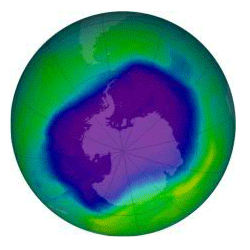 |
| |
In the 1980s our sample
businessman, shown below tried to impress his secretary by using a
rather cheap antiperspirant called TIGER. According to the advertising
campaign, spraying ‘Tiger’ under sweaty armpits encourages women to show
affection towards the user.
The antiperspirant failed to work. However, a side affect of using sprays
in the 1980’s is that the CFC gases inside the can, when released, damaged
the earths ozone layer. |
| |
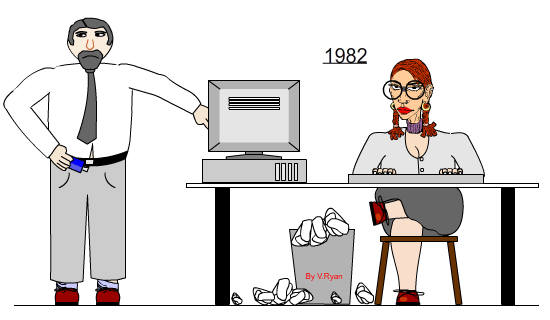 |
| |
|
|
| |
| By 2007 our businessman blamed ozone layer depletion on
his hair loss, due to years of unfiltered sun rays directly on his head.
No amount of antiperspirant will help him now. |
|
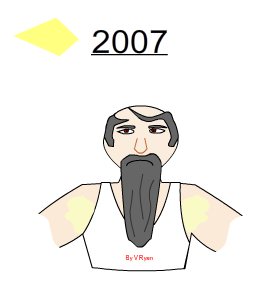 |
| |
|
|
By 1989 Governments around the world realised that the
damaging CFC gases had to be replaced with environmentally friendly
alternatives. (Montreal Protocol on Substances That Deplete the Ozone
Layer, 1989)
When you buy a can of antiperspirant or any type of spray, check for the
Ozone Friendly symbol. This means that gases inside the container will not
damage the atmosphere.
Two other important symbols are normally on pressurised containers. A
symbol reminding the purchaser of the dangerous of solvent abuse and a
warning that the gases used to pressurise the can could be extremely
inflammable. |
|
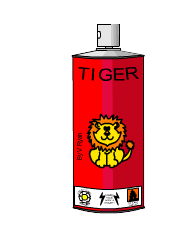 |
| |
|
|
PDF
FILE - CLICK HERE FOR PRINTABLE
VERSION OF EXERCISE SEEN BELOW
Design your own ‘No CFC’s’ symbol. Think carefully
about the colour scheme. This should reflect the environment (suggestion -
green and blue may be a good starting point). You may wish to base it on
the existing ‘No CFC’s’ symbol or develop a completely new symbol. Add
notes to help explain your designs. An example design is shown below. |
| |
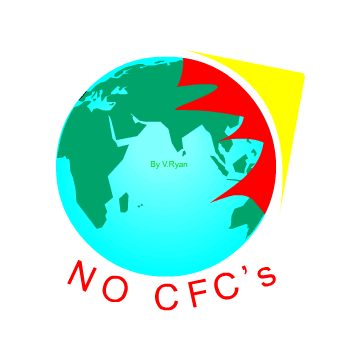 |
|
The symbol opposite emphasises the damage caused by CFC
gases to the ozone layer. The yellow represents the suns rays. A large amount of the earth is coloured red, this shows the
scale of the damage.
What do you think of this symbol? |
| |
|
|
| |
| Sketch two rough designs in the
boxes below. |
| |
 |
| |
| Select your best design and draw it accurately in the
space below. Use colour and shade to enhance the final presentation. Add
notes to help explain your design. |
| |
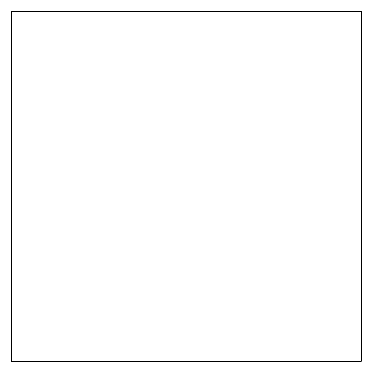 |
|
| |
| Draw your best design again, this
time using a CAD package such as Corel Draw or Flash. |
| |
| What does CAD mean? |
|
| |
| In your opinion are there any
advantages to using CAD - list them below? |
|
| |
| What are the advantages of
sketching by hand? |
|
| |
| Which of the two methods of
designing, CAD or sketching by hand do you prefer? |
|
| |
|
|
| |
The special CAM machine seen
below is to be used to different coloured cut sticky back vinyl which will
be used to manufacture the new NO CFC’s symbol.
Name a suitable CAM machine that could be used for the manufacture of the
symbol. |
| |
| Name: |
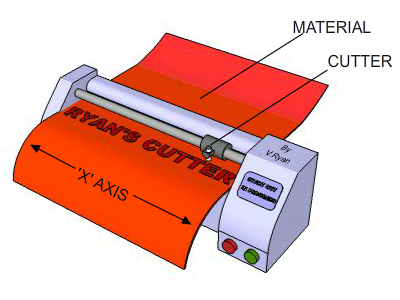 |
| |
| Red, Blue, Green and yellow coloured vinyl are to be
used to manufacture the symbol. Explain how the machine could be used to
carry this manufacturing process. |
|
| |
| It has been decided that the same design of symbol is
to be manufactured using coloured card. List the equipment you would need
to manufacture the symbol and sketch a simple drawing of each piece. |
| |
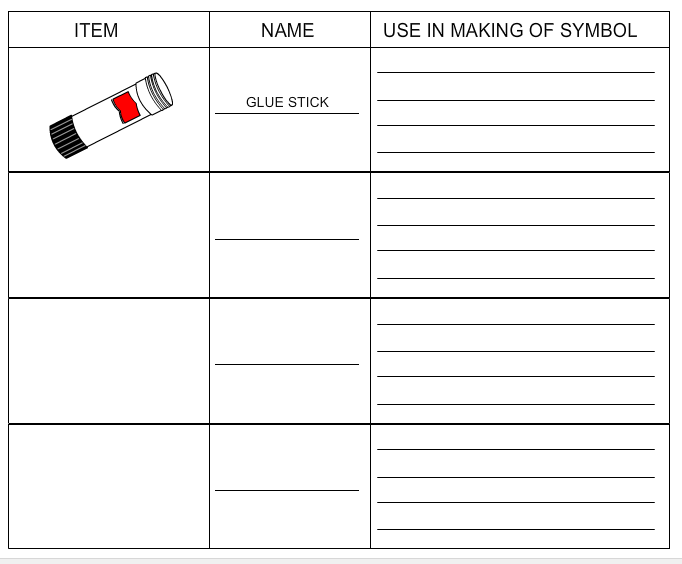 |
| |
| CLICK HERE FOR GRAPHICS INDEX PAGE |
| |
| CLICK HERE FOR TECHNOLOGY AND ENVIRONMENT
INDEX PAGE |
| |








